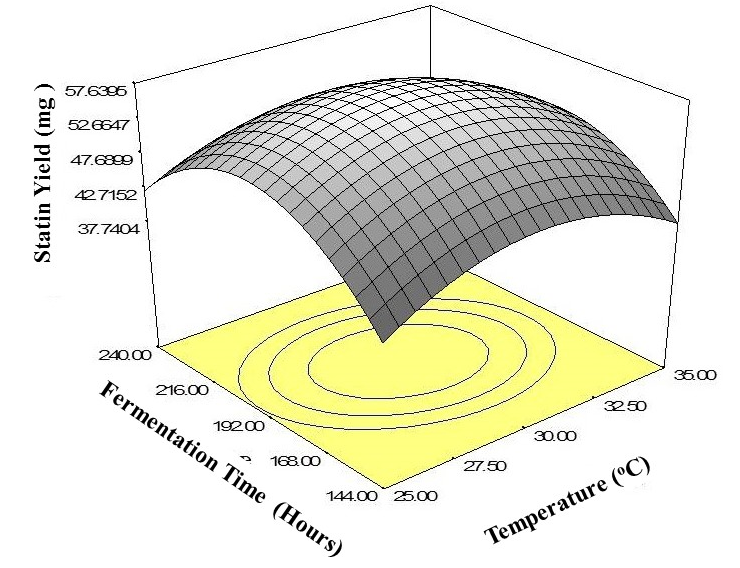 |
|
The objective of this study was the investigation of optimum conditions for lovastatin production from Aspergillus terreusthrough response surface methodology (RSM) with central composite design (CCD). The efficacy of produced and purified statinwas thenevaluated by using induced hypercholesterolemic rats. A. terreus was used to synthesize statin by using solid state fermentation on lignocellulose substrate, wheat straw. Total 30 experiments were conducted in triplicate for four physical parameters, each at five levels and response (statin production) from A. terreus was measured. Maximum statin formation (60mg/g) obtained from A. terreus at temperature 30ºC, pH 7.37, Inoculum size 4.5 mL and fermentation time 192 h. Hypercholesterolemia was induced in rats by feeding a high cholesterol diet in group I,II and group III from 0 to 30 days. From days 15-30, Group III (treatment group) was given statin extracted from A. terreus. Significant reduction in serum cholesterol level in group III rats treated with purified statin were observed at 30th day with significant increase in serum HDL levels along with significant reduction of serum LDL levels.
Keywords: Statin, Optimization, response surface methodology, Aspergillus terreus, Lignocellulosic substrate.
|
|
 |

